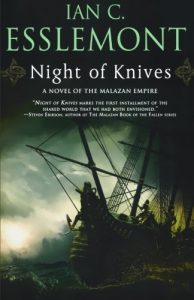 This is where the Malazan books get logistically weird. Because, see, Erikson had a fellow gamer partner back in the early ’80s or whenever they were building this world, which is ultimately my point, that the world builder behind the Malazan books is a they. And apparently the dividing line they have drawn is that Erikson writes about the Malazan Empire in decline[1], whereas Ian Esslemont writes about the Malazan Empire in ascension. Well, he does eventually. In a trilogy written later than this one.
This is where the Malazan books get logistically weird. Because, see, Erikson had a fellow gamer partner back in the early ’80s or whenever they were building this world, which is ultimately my point, that the world builder behind the Malazan books is a they. And apparently the dividing line they have drawn is that Erikson writes about the Malazan Empire in decline[1], whereas Ian Esslemont writes about the Malazan Empire in ascension. Well, he does eventually. In a trilogy written later than this one.
Night of Knives is ostensibly about the Malazan Empire on the cusp of decline. That is to say, it is about the specific night when the Emperor Kellanved (but don’t say his name, just in case) died, or was deposed, or was assassinated, or if some darker rumor about what happened is the truth. (He said, nobly avoid spoilers from Gardens of the Moon.) But I said ostensibly, because it’s really about new characters reacting to the events of those twenty-four hours on Malaz Island, birthplace of an empire turned sleepy backwater port town that nobody has cared about in decades, that night when strange things were afoot that happens every so often in the island’s mythology, that night when the realm of Shadow is closest, when the Deadhouse stirs, when everything is ripe for a Really Big Event. Such as an emperor’s fall. Or whatever happened.
So. I liked the new characters, and I hope that the five sequels to this book that are as far as I know still set on that cusp I mentioned do something interesting with them. I liked a little bit more plain talk about the history of the empire; while it’s Erikson’s strength that he throws you into the world without a life preserver and trusts you to tread water until you discover the joy of swimming, it’s his weakness that he sometimes forgets to eventually throw you a life preserver anyway, because joy doesn’t cancel tiredness[2]. Or, this was always Esslemont’s story to tell, and Erikson has simply been staying out of the way for something like half of the series. Like I said in the first place, it’s really very strange having another person play in a world-building sandbox, without it being slash turning into a farmed industry a la Star Wars.
[1] Obviously it’s not ultimately anywhere near as simple as that, but it is absolutely the launching point of the series.
[2] To my surprise, I’m still happy with that metaphor upon review.
 Meanwhile, another Audible dramatic presentation, because that’s a thing I do now? It’s not really my fault, both of these were monthly freebie giveaways, and I still haven’t finished the Malazan side book I’m reading, due mostly to the previously mentioned horror show that is my professional life. Although to be fair, I would have spent a hard-earned credit on this one.
Meanwhile, another Audible dramatic presentation, because that’s a thing I do now? It’s not really my fault, both of these were monthly freebie giveaways, and I still haven’t finished the Malazan side book I’m reading, due mostly to the previously mentioned horror show that is my professional life. Although to be fair, I would have spent a hard-earned credit on this one. My job really is the worst right now, as I’ve learned over the past week of no longer having a co-worker. Because, obviously, the workload did not change to accomodate my new circumstance. Which is why, despite being seemingly the only person in the country who saw
My job really is the worst right now, as I’ve learned over the past week of no longer having a co-worker. Because, obviously, the workload did not change to accomodate my new circumstance. Which is why, despite being seemingly the only person in the country who saw  To be honest, I’m not even sure
To be honest, I’m not even sure 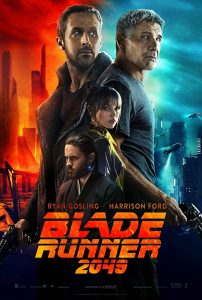 The other movie I’ve watched lately (because these are both like two weeks old, sigh) is
The other movie I’ve watched lately (because these are both like two weeks old, sigh) is  During the credits for
During the credits for 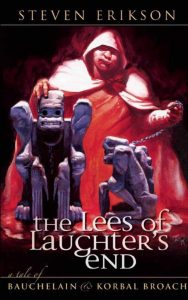 Well, this is incredibly annoying.
Well, this is incredibly annoying. I went to see the fourth Avengers movie on Friday afternoon, right after work and thusly before it was feasible that my on-call duties this weekend would interfere. (As it turns out, it has been non-stop smooth sailing, but I had no way to guess that then.) Obviously I can’t talk about the movie, because, well, you know.
I went to see the fourth Avengers movie on Friday afternoon, right after work and thusly before it was feasible that my on-call duties this weekend would interfere. (As it turns out, it has been non-stop smooth sailing, but I had no way to guess that then.) Obviously I can’t talk about the movie, because, well, you know.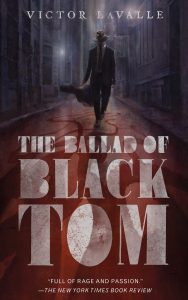 As a part of the ongoing series, Chris Reads Books Years Past When People Were Recommending Them, sponsored in this case by Tor who had the ebook on offer for free a few months ago, I present: a review of
As a part of the ongoing series, Chris Reads Books Years Past When People Were Recommending Them, sponsored in this case by Tor who had the ebook on offer for free a few months ago, I present: a review of 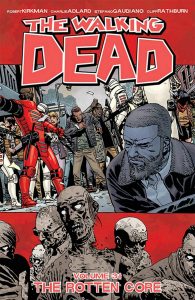 I feel bad using the horror tag by default on
I feel bad using the horror tag by default on